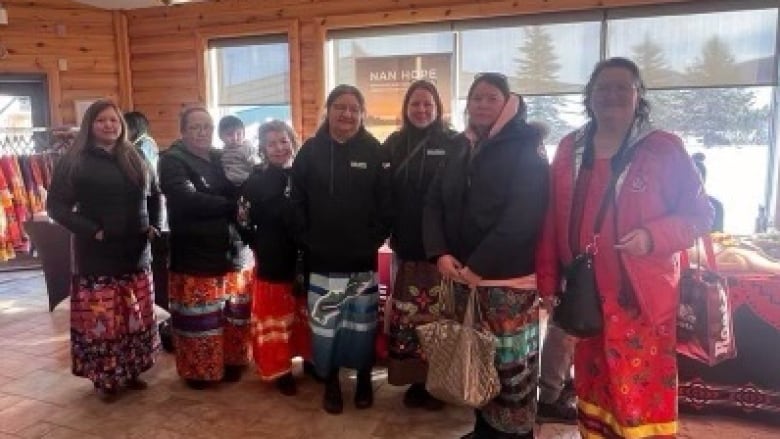Crisis counsellors call on Nishnawbe Aski Nation to declare mental health, addictions state of emergency
Counsellors say they 'can barely keep up' with demand for their services

Counsellors with the Indigenous crisis response agency NAN Hope are calling on leaders with the Nishnawbe Aski Nation (NAN) to declare a state of emergency related to mental health and addictions.
"There have been so many deaths, like we can barely keep up with the help that the communities need, and that the people need here in [Thunder Bay] as well," said Tannis Smith, a coordinator and counsellor with NAN Hope.
The agency is federally funded, and provides mental health and addictions support to people from the 49 NAN First Nations, spread across Treaties 9 and 5 in northern Ontario.
"Some communities that I know in the past year have had over 30 deaths in the last year, and these are not huge communities that are having these kinds of deaths," Smith said.
Smith wasn't able to provide specifics in terms of how many deaths she's seen across the NAN territory which includes some 45,000 people but she did say manyof the deaths are connected to addictions,andthesuicide rate has "skyrocketed over the last few years."
There have been other emergencies that have required intensive counselling, like two deadly house fires this winter in Pikangikum and PeawanuckFirst Nations, Smith added.
If NAN leaders do declare a state of emergency, Smith said she hopes it would lead to more resources being provided by the provincial and federal governments.
CBC News sent a number of questions to a spokesperson with NAN, including whether the executive council would declare a state of emergency, and what additional resources could be made available. The spokesperson did not respond by the time of publication.
But in February, the NAN Women's Council issued a statement of support for those struggling with mental health.
This situation has created an environment of hopelessness and helplessness. To those who are struggling, we encourage you not to give up.- Statementfrom the Nishnawbe Aski Nation's Women's Council in support of people struggling with mental health
"Crisis response at the community level has reached a critical point. High rates of unnatural deaths, mental health issues, and addictions especially the opioid pandemic have exhausted existing resources, services and limited funding," the statement said.
"This situation has created an environment of hopelessness and helplessness. To those who are struggling, we encourage you not to give up."
Smith said NAN's deputy grand chief Anna Betty Achneepineskumhas been supportive of the crisis counsellors' call for more resources.
But if the state of emergency is not declared, or additional resources are not provided, Smith says she worries about what may happen across the north.
"There's going to be more deaths, and lots and lots and lots of deaths," she said.












_(720p).jpg)


 OFFICIAL HD MUSIC VIDEO.jpg)
.jpg)



























































































